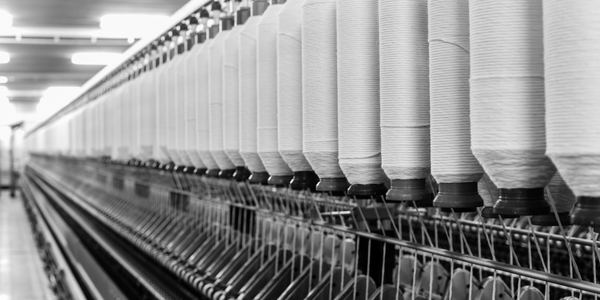Company Size
1,000+
Region
- America
Country
- United States
Product
- Cloudinary
Tech Stack
- Workarea
- Ruby on Rails
- Amazon server
Implementation Scale
- Enterprise-wide Deployment
Impact Metrics
- Brand Awareness
- Customer Satisfaction
Technology Category
- Platform as a Service (PaaS) - Connectivity Platforms
Applicable Industries
- Apparel
- Retail
Applicable Functions
- Business Operation
- Sales & Marketing
Use Cases
- Retail Store Automation
- Supply Chain Visibility
Services
- Cloud Planning, Design & Implementation Services
About The Customer
Reformation is a Los Angeles-based fashion brand that “makes killer clothes that don’t kill the environment.” The process for its sustainable women’s clothing and accessories starts with designers thinking about what its customers really want to wear right now. While most fashion is designed 12 to 18 months before it’s released, at Reformation a sketch can become a dress in about a month. The company sources the most beautiful and sustainable fabrics possible to bring those designs to life quickly. Reformation has brick-and-mortar stores in California, Florida, Illinois, Massachusetts, New York, Texas, and Washington, D.C., with plans to open between five to eight new locations annually. These storefronts are designed to showcase the company’s products, but to date the majority of its business is conducted online.
The Challenge
Reformation, a Los Angeles-based fashion brand, primarily focuses on eCommerce, with more than half of their customers visiting its website using mobile devices. The company was using an out-of-the-box, built-in functionality included with Workarea, its eCommerce platform. It leveraged Dragonfly, a customizable RubyGem, to generate thumbnails in Ruby on Rails. However, this solution was causing issues as it required every website visitor to download the same image at the same resolution. This either caused issues with the quality of brand and product images on high-resolution screens or required unnecessary bandwidth use by the customer, depending on the platform or device they were using to access the site. Additionally, the company was experimenting with video on the site, integrating clips via Vimeo. However, the performance was choppy and not the quality experience it hoped to deliver to visitors.
The Solution
Reformation integrated Cloudinary into its workflow in October 2018 to support its fast turnaround from photoshoot to product launch. The creative team uploads final images to an FTP site, identifying products based on style, color, and other features. The development team has a cron job set up to check for those images on a regular basis, which then creates the necessary database connection and uploads to Reformation’s Amazon server. Cloudinary is used in the background to upload high-resolution originals and deliver an optimized, responsive version to each visitor, regardless of whether they access the site via the web or on their mobile device. Rather than manually specifying breakpoints for each image across the homepage, product listing page, and product details page, Reformation uses Cloudinary to automatically adjust the resolution and pixel density of every image based on the device pixel ratio (DPR) and viewport of the viewing device. In addition to these product images, which are featured on product listing and product detail pages, Reformation also leveraged Cloudinary to optimize its content images. The content images are marketing images, often with text overlays, that are handled through Reformation’s content management system. After seeing how Cloudinary had been instrumental in optimizing images, Reformation adopted it for videos as well. This process, too, is automated. The eCommerce merchandising team simply uploads each video into Workarea, then Cloudinary ensures delivery of videos with smooth streaming and no buffering interruptions, regardless of the device or bandwidth available to the customer.
Operational Impact
Quantitative Benefit

Case Study missing?
Start adding your own!
Register with your work email and create a new case study profile for your business.
Related Case Studies.

Case Study
Fire Alarm System and Remote Monitoring Sytem
Fire alarm systems are essential in providing an early warning in the event of fire. They help to save lives and protect property whilst also fulfilling the needs of insurance companies and government departments.Fire alarm systems typically consist of several inter-linked components, such as smoke detectors, heat detector, carbon monoxide, manual call points, sounders, alarm and buzzer. The fire alarm system should give immediate information in order to prevent the fire spread and protect live and property.To get maximum protection a shoe manufacturer in Indonesia opted for a new fire alarm system to monitor 13 production sites spread over 160 hectars. Although the company had an existing fire alarm system, it could not be monitored remotely.It was essential that the new system would be able to be monitored from a central control room. It needed to be able to connect to the existing smoke detector and manual call point. Information should be easily collected and passed on to the Supervisory Control and Data Acquisition (SCADA) system. Furthermore, the system should have several features such as alarm management, auto reporting, being connected to many client computers without additional cost, and run 24/7 without fails. The company also needed a system which could be implemented without changing the architecture of the existing fire alarm system.

Case Study
IoT Applications and Upgrades in Textile Plant
At any given time, the textile company’s manufacturing facility has up to 2,000 textile carts in use. These carts are pushed from room to room, carrying materials or semi-finished products. Previously, a paper with a hand-written description was attached to each cart. This traditional method of processing made product tracking extremely difficult. Additionally, making sure that every cart of materials or semi-finished products went to its correct processing work station was also a problem. Therefore, the company desired an intelligent solution for tracking assets at their factories. They also wanted a solution that would help them collect process data so they could improve their manufacturing efficiency.

Case Study
Improving Production Line Efficiency with Ethernet Micro RTU Controller
Moxa was asked to provide a connectivity solution for one of the world's leading cosmetics companies. This multinational corporation, with retail presence in 130 countries, 23 global braches, and over 66,000 employees, sought to improve the efficiency of their production process by migrating from manual monitoring to an automatic productivity monitoring system. The production line was being monitored by ABB Real-TPI, a factory information system that offers data collection and analysis to improve plant efficiency. Due to software limitations, the customer needed an OPC server and a corresponding I/O solution to collect data from additional sensor devices for the Real-TPI system. The goal is to enable the factory information system to more thoroughly collect data from every corner of the production line. This will improve its ability to measure Overall Equipment Effectiveness (OEE) and translate into increased production efficiencies. System Requirements • Instant status updates while still consuming minimal bandwidth to relieve strain on limited factory networks • Interoperable with ABB Real-TPI • Small form factor appropriate for deployment where space is scarce • Remote software management and configuration to simplify operations

Case Study
How Sirqul’s IoT Platform is Crafting Carrefour’s New In-Store Experiences
Carrefour Taiwan’s goal is to be completely digital by end of 2018. Out-dated manual methods for analysis and assumptions limited Carrefour’s ability to change the customer experience and were void of real-time decision-making capabilities. Rather than relying solely on sales data, assumptions, and disparate systems, Carrefour Taiwan’s CEO led an initiative to find a connected IoT solution that could give the team the ability to make real-time changes and more informed decisions. Prior to implementing, Carrefour struggled to address their conversion rates and did not have the proper insights into the customer decision-making process nor how to make an immediate impact without losing customer confidence.

Case Study
Digital Retail Security Solutions
Sennco wanted to help its retail customers increase sales and profits by developing an innovative alarm system as opposed to conventional connected alarms that are permanently tethered to display products. These traditional security systems were cumbersome and intrusive to the customer shopping experience. Additionally, they provided no useful data or analytics.




